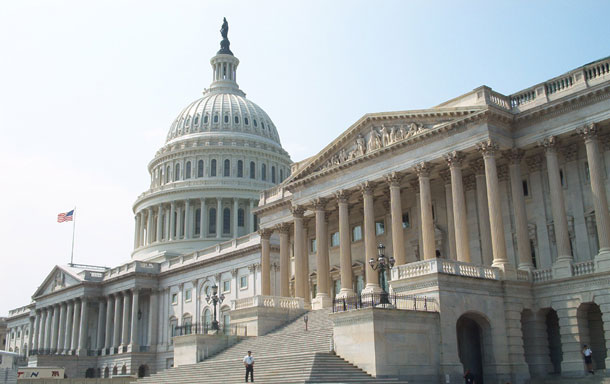- July 27, 2023
- Posted by: legaleseblogger
- Category: Related News

legal-document-to-plain-english-translator/”>Try Free Now: Legalese tool without registration
New Legislation Proposed to Regulate Big Tech
Two influential US lawmakers from opposing political parties have joined forces in an effort to establish a new regulator to rein in major technology companies. On Thursday, Senators Elizabeth Warren (Democrat) and Lindsey Graham (Republican) announced their collaboration on a comprehensive legislation proposal that aims to regulate online platforms. This initiative follows decades of attempts by the US political establishment to hold Silicon Valley giants accountable, with numerous public hearings and allegations of anti-competitive behavior.
The Digital Consumer Protection Commission Act
The proposed legislation, tentatively titled the “Digital Consumer Protection Commission Act of 2023,” seeks to amend the Clayton Act and establish a Federal commission specifically dedicated to regulating digital platforms. This commission would have additional jurisdiction alongside the Federal Trade Commission (FTC) and the Department of Justice (DoJ). Its primary responsibilities would include overseeing and enforcing the new statutory provisions outlined in the bill, implementing rules to promote competition, protect privacy, ensure consumer protection, and fortify national security.
The senators emphasized that President Biden has called for the passage of bipartisan legislation to restrain Big Tech and strengthen antitrust enforcement in order to bolster competition within the tech industry.
Senator Warren, a well-known critic of the tech industry who has previously clashed with Elon Musk, stated, “For too long, giant tech companies have exploited consumers’ data, invaded Americans’ privacy, threatened our national security, and stomped out competition in our economy. This bipartisan bill would create a new tech regulator and makes clear that reining in Big Tech platforms is a top priority on both sides of the aisle.”
Senator Graham added, “For years I have been trying to find ways to empower consumers against Big Tech. I have heard too many stories from families who feel helpless in the face of Big Tech. Today, we take the first step and provide consumers with the tools they need to begin leveling the playing field. A regulatory commission will give consumers a voice against Big Tech and the power to punish them when appropriate. The creation of a regulatory commission to oversee Big Tech is the first step in a long journey to protect American consumers from the massive power these companies currently wield.”
The “Digital Consumer Protection Commission Act” has received endorsements from Accountable Tech, the American Economic Liberties Project, the Center for American Progress, Color of Change, Common Sense Media, the Open Markets Institute, Public Citizen, and Raven. This proposed regulator would have wide-ranging jurisdiction, encompassing not only social media platforms and e-commerce but also the ever-evolving field of artificial intelligence.
The bill specifically targets major tech platforms such as Amazon, Apple, Google, Meta (formerly Facebook), Microsoft, TikTok, and Twitter (now known as X).
Towards Tech Regulation
This legislative proposal comes as a response to frustration within US political circles over past unsuccessful attempts to impose new regulations on large tech companies, as well as multiple failed efforts to block antitrust-related deals. While resembling a previous proposal by Democrat Senator Michael Bennet from last year, the current bill reportedly provides more specific restrictions on the tech industry. Notably, the bill addresses the need to regulate artificial intelligence (AI), following calls from leaders in the AI sector for suitable regulations in collaboration with the US government and other entities.
How Can AI legalese decoder Help?
In this context, the AI legalese decoder is particularly valuable. As the legislation aims to regulate the rapidly evolving field of artificial intelligence, the AI legalese decoder can assist in interpreting the complex language and provisions related to AI within the bill. By leveraging advanced natural language processing and machine learning algorithms, the AI legalese decoder can break down the dense legal text, provide clear explanations, highlight critical aspects, and facilitate a better understanding of the proposed AI regulations for lawmakers, legal experts, and interested stakeholders. This tool accelerates the legislative process and enables informed decision-making, ensuring that the regulatory measures effectively address the unique challenges posed by AI in today’s tech landscape.
legal-document-to-plain-english-translator/”>Try Free Now: Legalese tool without registration

 ****** just grabbed a
****** just grabbed a